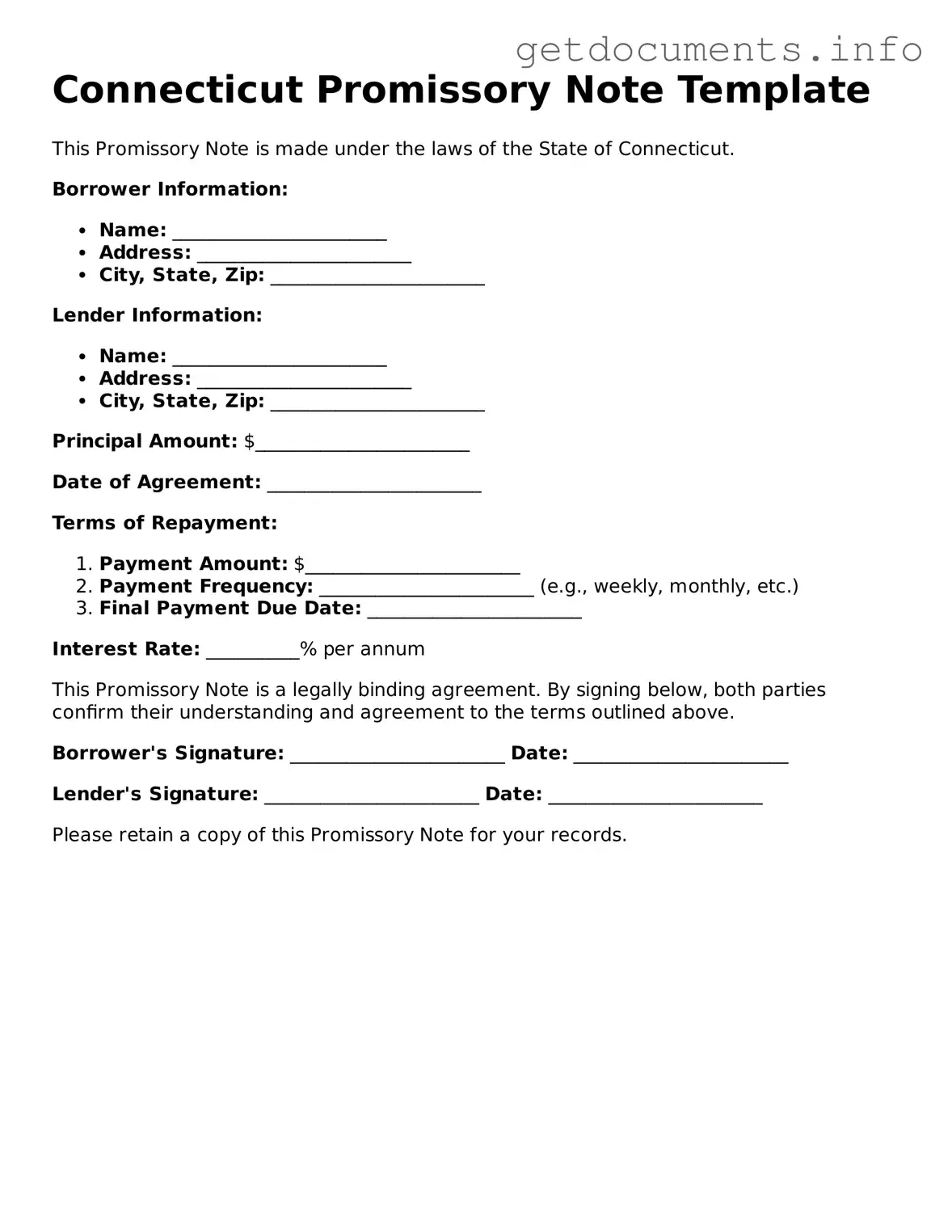Free Promissory Note Template for Connecticut
A Connecticut Promissory Note is a legal document in which one party promises to pay a specific amount of money to another party at a designated time. This form outlines the terms of the loan, including the interest rate and payment schedule, providing clarity and protection for both the lender and borrower. To ensure a smooth transaction, consider filling out the form by clicking the button below.
Access Promissory Note Editor

Free Promissory Note Template for Connecticut
Access Promissory Note Editor
Got places to be? Complete the form fast
Fill out Promissory Note online and avoid printing or scanning.
Access Promissory Note Editor
or
⇩ PDF File
